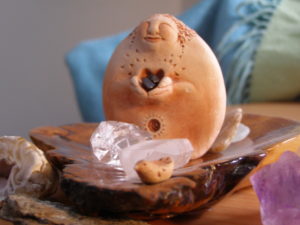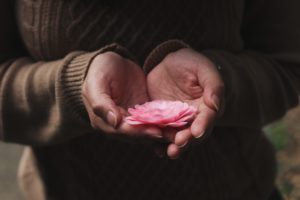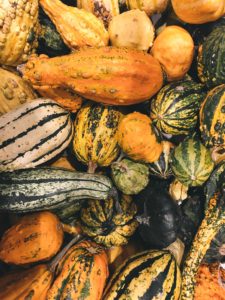by Jenny Rose | Mar 8, 2018 | Choice, Power
Selchie: A mystical creature who takes the form of a seal in the sea and a human on land.
I have a picture book from my childhood called Greyling, by Jane Yolen. It’s one of my favorite stories, by one of my favorite authors, and I’ve told it as an oral storyteller for many years. When I began doing storytelling, I sought out all the selchie stories I could find and incorporated them into my programs.
I rarely tell a selchie story without fighting back tears.
I’ve lately revisited this wonderful material for the second book in my Webbd Wheel series, and it occurred to me to explore why these stories touch me so painfully and deeply.
Selchie stories appear in the Hebrides, Iceland, Orkney, Scotland, Ireland and the Faroe and Shetland Islands. Like all lasting oral traditions, they contain blueprints for navigating loneliness, exile, love, loss, competition, compassion, trust and power. A good story has many facets.
A common thread in selchie stories is that a seal comes to land, takes off its skin, and becomes human, usually a beautiful young woman. Subsequently, the skin is stolen by a man and the woman entrapped. In many of the tales, she marries the man who has her skin (always a fisherman) and bears his children. Sometimes her husband promises after a certain number of years he’ll allow her access to her skin again, but he doesn’t follow through for fear of losing her. Inevitably, the skin is found, often by a child, and returned to the selchie, who must then face a choice between her life with her family and her life in the sea.

Photo by Jeremy Bishop on Unsplash
It is this choice that makes me weep. I know the agonized longing for what we are made of but can’t ever quite find.
As I observe the world and people around me, I think many of us feel in some way exiled from who we were born to be, from a place, from a tribal connection, from some integral expression of self. I believe this exile creates such an unbearable hunger we grasp at anything within our reach in order to appease it, becoming addicts, developing eating disorders and body dysmorphism, and struggling with anxiety and depression. We live in a culture of distraction and entertainment. We’re busy, noisy, exhausted, and inundated with information, stimulation, propaganda, manipulation and demands.

Photo by Anna Dziubinska on Unsplash
We want what we are made of, but how do we find what that is? Why is it taken away or withheld from us? Why are we so often forced to choose between one thing we’re made of and another? This all lies at the heart of selchie stories, for the selchie is a creature torn between two worlds and two tribes, and we instinctively recognize this conflict.
Choice is so often grief. If a selchie re-dons her skin and goes back to the sea, she cannot return, for she already knows the terrible cost of losing her skin, and though she may love her children and even have grown to love the fisherman she’s with, she cannot trust him. In returning to the sea, she is joyous, but now the grief of leaving her children and the life she made on the land replaces her longing for the sea.
I was with a man who avoided choice. He said he didn’t like to choose one thing in case something better came along. My experience of this was that he didn’t want to commit. It meant we couldn’t plan a date, a weekly ritual or even a walk. If we did, he frequently cancelled at the last minute. It was painful for me, and it frayed our connection considerably as I vacillated between hurt and anger. Eventually, I gave up and made my own plans. I told him that his maybe-I-will and maybe-I-won’t approach didn’t avoid a choice but was a choice. He refused to take responsibility for that, and he was bitter about the choices I made subsequent to his.
I’ve also been with partners who believe we can have it all. One man walked away from any situation in which he couldn’t have his cake and eat it too. It was a point of pride with him. He didn’t see why he shouldn’t have it all, and, as far as he was concerned, the world (and I) owed him that. Looking back, I see this as just another evasion of the heartbreak and consequences of having to make choices.
I think very few of us have the luxury of having it all. We come together and move apart, searching, fleeing and climbing ladders we hope end in success. Many of us feel rootless in terms of place and tribe. We don’t really feel we belong anywhere on a map, and we have no rightful place in a human circle. We do the best we can, a choice at a time, and over the years those choices and their consequences teach us who we are and turn us into adults.
What we’re made of is not necessarily what we’re born into. What we’re made of is not necessarily the place we live in, the people surrounding us, the job we have, the clothes we wear, the car we drive or the color we dye our hair. What we’re made of is not always who we want to be, who we insist we are or who we’re expected to be. Discovering what we’re made of is an excavation of our dreams, our souls and our joyous bodies. Many of us spend our whole lives finding one piece of ourselves at a time, stumbling, groping, picking up and discarding, searching blindly in the dark with nothing but our feelings to guide us.
On one particular day of no special consequence, my small toddling self, clothed in a yellow bathing suit with white trim, was lifted into a pool of water as big as the sea. From that day to this I’ve loved the water, and during occasional long, dry spells without access to swimming I dream of water and wake myself weeping with the anguish of my longing.
I’m a creature of water. It’s part of what I’m made of.

Photo by Nathan Anderson on Unsplash
For some years I lived in a city and laid awake at night watching headlights move across the ceiling and walls, straining to hear a precious moment of silence in between the sound of cars and sirens and too many restless people moving through the pale night. I dreamed of high, snow-covered mountains under starry skies and the peace of trees in unbroken darkness. Every day I died a little more, but I knew in my heart one day, one day I would leave the city and live in the shadow of the mountains I dreamed of. A thousand nights later I freed myself from the tentacles of that city, but I also left behind my marriage and the father of my children, my belief in happy-ever-after, the most lucrative job I ever had and the good wife and mother I wanted so much and tried so hard to be.

Photo by Ryan Hutton on Unsplash
At last, I slept in the shadow of snow-covered peaks in a small mountain town without pavement and street lamps and sirens. When I awoke at night, I heard the cry of the vixen, the rushing wind, the owls calling to one another, the sound of the bear eating apples from the tree outside my window, or the raccoons cavorting in the tops of the pear trees like furry pirates.
I did not have it all. I had another piece of what I’m made of. I chose it, and I paid for it. I’m still paying for it, twenty years and thousands of miles later, and whatever the cost, it’s worth it. I cannot live in the city.
By the time my life is over, will I know everything I’m made of? Will I have lived with enough courage to choose what I’m made of, come what may? Will living true to what I’m made of sustain me? Will I ever find my own sealskin wedged between rocks, or locked away in a chest, or hidden in the thatch?
Reclaiming what I’m made of, one choice at a time. My daily crime.
The selchie lives in a small cottage on the shingle beside the sea. She lives with a fisherman whose face is carved with a lifetime of loneliness that she has relieved. She and her children gather seaweed and driftwood, mend nets and dry fish and watch for the fisherman’s return, lighting a lamp and setting it in the window to welcome him home in the evenings. She lies with her man at night and listens to him sleep, and the waves come in, and the wind sighs through the beach grass, and she thinks of her sea kin and wonders how it is with them and if she’ll ever see them again.

Photo by Kace Rodriguez on Unsplash
The selchie takes the folded sealskin from her child and holds it to her breast, weeping, smelling its fading perfume of fish and sea, rubbing its softness against her cheek. She tells her children she loves them, but she must leave, and they clutch at her hands and her skirts, crying, not understanding what is happening. She tells them they will see her again, but in a different form. She cannot stop to explain, lest the fisherman return and her chance for freedom is lost. She stumbles out of the house, casting aside her clothing as she goes, until she stands naked in the surf and steps into the skin. The children follow, stricken and wailing, pleading with her not to leave, but her need for what she is made of is even greater than her love for them, and the surf takes her gladly in its embrace and carries her out. She looks back one more time, her great, dark eyes full of tears, before she dives into the arms of what she is made of and disappears.
All content on this site ©2018
Jennifer Rose
except where otherwise noted
by Jenny Rose | Feb 22, 2018 | Choice, Power
A small clay sculpture of a woman with her hands cupped in front of her chest sits on my desk. She holds a tiny clay bird and is surrounded by a couple of crystals, a piece of amethyst and a small geode. This little altar has been my daily companion for years. Wise and smiling, round and nurturing, the sculpture has comforted me through many losses, grief and rage. She’s one of my greatest treasures.

Letting Go
These days, the bird she holds is perched on the rim of the wooden dish she sits on, looking out at the room, at the world, at me. It can stay, or it can fly away. For now, it’s content to sit, watching and listening, as I live my life in these two small rooms at the top of our sagging farmhouse.
I have placed tiny polished garnets in the woman’s cupped hands where the bird once nestled.
I had a friend, dear and wise, in my old place who once said to me if we open our hands and let something go, and keep our hands open, something new will come and fill them. As she spoke, I again saw the image of an open hand, generous, allowing freedom, and prepared to welcome and support the next thing, and the next.
Letting go is power. Letting go is serenity. Letting go is an authentic act of love toward self and others. The usefulness of letting go is not a secret. Almost any self-help book out there talks about it as an aspect of healthy functioning, but I think popular psychology doesn’t explore it deeply enough.
Letting go doesn’t mean we brush aside our feelings. Not at all. Unexpressed feelings cement us in place. We all know people who remain frozen in time because of a death or traumatic event. Years and decades pass, but they don’t heal. They don’t move on. Their emotional growth is arrested. This is what unfinished emotional business looks like. Unexpressed feelings can’t flow through us and dissipate so we can release them.
We know very little about appropriately expressing our feelings in this culture.
Feelings aren’t thoughts. They’re not stories, expectations, beliefs or ideology. They’re not labels or rules. Like it or not, admit it or not, we’re physiologically wired for feelings, and they give us good information about how things are with us. Our thoughts and beliefs, on the other hand, are frequently distorted, confused, misinformed, outdated or otherwise unreliable.
That’s where letting go comes in.
We’ve all had events in our life that left deep scars. We’ve all seen things we can’t unsee, heard things we can’t unhear and done things we can’t undo. We’ve all felt disempowered or victimized at one time or another. Death and disaster enter our lives with no warning and take those we love.
Some people move on from such events with more grace than others. I suspect part of that grace has to do with forgiveness. Not forgetfulness, but forgiveness of self and others. I suspect another part is the ability to fully experience and express the feelings attached to the event. That requires a certain kind of support, and many folks don’t have it. Some people simply don’t choose to move on or let go. They center their thoughts, feelings and energy in the event, whatever it was, and they hold it tight, cherishing it, feeding the fire of their pain, keeping their scars open with the razor blade of their attention and focus. It becomes part of their identity, part of their story, a grievance to cling to, a betrayal to treasure, a wound to worship.

Photo by Andrey Grinkevich on Unsplash
I have a book called Clean Sweep, by Denny Sargent. It’s filled with rituals and instructions to help us let go of what no longer serves us. The author outlines a banishing exercise in which he suggests the reader visualize holding tightly to a thorny branch. In my own version, the branch is heavy, so heavy I can hardly hold it, which drives the thorns deeply into my flesh. The branch is a person, event, memory or belief that gives us emotional pain. We can make an easy choice and cling to it, cradle it, embrace it, let it tear our skin and make us bleed. We can make a harder choice and set it down, open our hands and let it fall. We can walk away from it. We can burn it or bury it.
In order to let go, we have to be willing to surrender control and endure loss. Letting go of a core piece of identity, a long-held belief or a painful memory is difficult work, even when that core piece, belief or memory gives us great pain. Letting go will leave a hole. Then what? Then who are we? How do we fill that hole? How do we understand ourselves and our place in the world? This is scary stuff.

Photo by a-shuhani on Unsplash
Aristotle said nature abhors a vacuum. My friend was right. If we open our hand and release what we’re holding, something else will come, though we can’t predict or control what it might be. In fact, the thing released might return to us in another form. We can’t know. We’ll never know unless we release our need to control. We’ll never find out what might perch on our open hand if we’re not willing to walk through loss in order to reach gain.
I’m having a long and involved break up with my desire to control. Some days I go all day without thinking about it, and other days I want to micromanage everyone and everything in my life. Some days I feel light and free, a confident and lovely woman, and other days I feel like a grubby three-year-old hiding under the covers sucking my thumb because nothing and no one is the way I want them to be. I sulk and pout and snarl and I feel crushed by the thorny weight of my need to control.
Then, at some point, my eye falls on my little clay wise woman and her cupped hands and wide-open heart, and I say, “Oh, yeah. That’s right. Letting go.”
I feel annoyed when people tell me to “get over it.” First of all, I have a right to my feelings, and secondly, it’s not that easy. Letting go, for me, is a practice, and I need time to engage in it. Sometimes I go back and find my leaden armful of hawthorn or bramble or locust and hold it again for a while, opening up all the old wounds, exhausting myself, hurting myself, and, finally, opening my hands and letting it fall again. Sometimes I need to design a ritual for letting go, a prayer or a dance or some kind of purification rite. Sometimes I need to make a physical resting place, like a grave or a patch of garden or a newly-planted tree in order to let something go. For me, taking time to honor whatever it is I’m trying to release is helpful. Whatever it is that no longer serves, it was once a part of my life and experience. Laying things to rest in this way helps me release them fully and finally.
When it comes right down to it, this blog has been an exercise in letting go as much as anything else.

Photo by Ester Marie Doysabas on Unsplash
When we know how to let go, we increase our power, as well as the power of others. Often, what we desperately hold onto is people. This is a strong archetype in old stories; locking the beautiful maiden in the stone tower to “protect” her. Part of love, as any seasoned parent will tell you, is letting go. Imprisoning, disempowering and trying to control others isn’t love. Refusing to let go of someone isn’t love.
Releasing our grievances with others frees them as well as ourselves. Being willing to accept an apology, an explanation, and the imperfections of others allows us all to move forward with lighter loads. The stories and memories we hurt ourselves with are often ghosts, events involving people who are long dead and far in the past. We can choose to bless them and lay them to rest.
I don’t want to haul around painful memories, toxic garbage, the futility of trying to control life and ineffective behaviors and beliefs. I can’t swim with all that tied to my ankle. I can’t dance. I can’t embrace anything or anyone with an armful of brambles. I can’t create with a heart full of thorns.
I want to be free.
I open my hands.

Photo by Stephen Leonardi on Unsplash
Make a Boat
Make a boat
out of who you are
not what you have.
If you don’t know who you are
(Search for the desert between the worlds.
Find Bone Mother.
Recollect.
Reassemble.
Bathe in soul.
Birth yourself.)
That is another journey.
Your boat will be small.
You can take no one.
You can take no thing.
Shape your boat with your truth.
Shape it with the joy in your hands
and the wisdom in the soles of your feet.
Make a chisel of rage and grief.
Sand with the grit of clarity.
Stain with blood.
Oil your boat with the moisture and musk of your sex.
Stitch the rags of your life into a sail.
Weave rope from your hair.
Take your time
And remember
Fear does not float.
When you know the boat is ready,
Sit in it.
Lay the backs of your hands on your knees.
Open your hands.
Let everything go.
Let everything go.
Keep your hands open
So that new things may come.
Without fear
Ask the one who stands just behind your shoulder
The one who shelters your life in the shadow of her wing
To come forward.
She will guide the boat.
Surrender yourself to your boat,
to the water,
to your guide.
Find your breath.
Stay there.
Find your heartbeat.
Stay there.
Keep your hands open.
Rest.
Don’t stand up in the boat!
Don’t throw yourself out of the boat!
Don’t you want to see where you are going?
Look. See how the feathers on her wing
trail in the water?
All content on this site ©2018
Jennifer Rose
except where otherwise noted
by Jenny Rose | Jan 25, 2018 | Power
Arguing with what is.
Possibly the most fruitless endeavor in the world.
Yet many of us consistently argue with how we are, how others are, and how the world is.
Arguing with what is is like living in an unending war. Clinging to a story inconsistent with what is requires constant vigilance. Our lives begin to revolve around the fear that the truth we refuse to acknowledge will escape or be exposed.

Photo by Ian Espinosa on Unsplash
We cannot allow that to happen, so we put all our energy into convincing ourselves that what is isn’t. Then we start trying to persuade others to validate our particular reality because God speaks to us, or we’re especially victimized, marginalized, enlightened, rich or powerful. If we can’t persuade others, we try to create and enforce rules requiring them to fall into line, to agree, at least tacitly, with our point of view and belief system. We scorn critical thinking, science and evidence-based data. We discourage questioning, careful definitions and nuances. We create jargon, acronyms, blacklists and smear campaigns. We enlist the sympathy, empathy, kindness and compassion of well-meaning but naïve people. We set up zero sum games, use gaslighting, violence, abuse, projection, deflection, sweeping and inaccurate generalizations and distortions. We hurt ourselves, and we hurt others.
Arguing with what is is a full-time job.
My particular version of arguing with what is takes place mostly in my head. For example:
I don’t feel loved.
What? How can you say that? Remember that one kiss at the beginning, the most passionate kiss of your life? You know you want that again! Think of how funny he can be, how charming, how much fun! If you don’t feel loved it’s because you’re not trying hard enough. You’re ungrateful. You’re disloyal. You’re a bad partner. You don’t deserve him. You want too much. You’re needy and demanding. Of course he loves you, he’s just not comfortable saying it! You are happy and loved. Get a grip!
I don’t feel happy or loved.
I had this ding-dong conversation with myself for years. I desperately and repeatedly tried to convince myself I was both happy and loved, but I could never quite silence that deep internal voice that went right on saying, “I don’t feel loved.” It wouldn’t shut up. After years of this nonsense, I finally got so exhausted I stopped arguing with my true feelings and ended the relationship. Then, one day I came across narcsite dot com and immediately recognized the narcissist-empath dynamic.
You know what? I was right. I didn’t feel loved because I wasn’t, in fact, loved.

Photo by Travis Bozeman on Unsplash
Arguing with what is means fear and self-doubt are my constant companions.
So what’s the other side of the coin? What’s the fix for arguing with what is?
This magical phrase: However this needs to be, it’s okay with me.
Say it aloud: However this needs to be, it’s okay with me. Is it a lie? It usually is a lie for me when I first apply it to any given situation. I want things to be predictable, controlled and adhere to my expectations and standards. I expect that of myself, of others and of the world.
I haven’t had great luck with that expectation. The rebellious world is chaotic, unpredictable and unexpected. I’m not in charge of anyone but myself, and my feelings (along with the rest of me) are disobedient and refuse to be controlled.
My need for control and predictability are rooted in fear and lack of trust in myself. If, at any moment in any day, however things need to be is not okay with me, I know I’m dealing with fear or lack of self-trust, and those are both places where I have all the power. That instant refocus from avoiding, denying or refusing an inconvenient or unexpected truth or reality over which I have no power to the very center of my power clears away anxiety, confusion and fear. What happens in me, in a day, or in the world is not really the problem. The problem is in the way I manage my power and my choices. Addressing my own power and choices allows me to say, with perfect truth, that however this needs to be, it’s okay with me.
Being okay with the ways things are doesn’t mean endless love, light and turning the other cheek. It doesn’t mean I accept boundary violations, bullying, coercion, violence or any other kind of power-over games. It doesn’t mean I tip-toe through life pleasing others, following rules and keeping silent. It doesn’t mean toadying to the political correctness police. It doesn’t mean I feel no frustration or disappointment, or that the status quo should remain unchallenged and unchanged. It means clarity about where my power is.
Nobody wants a flat tire, herpes, an unwanted pregnancy, a cancer diagnosis, mental illness, the flu or to lose a loved one. We don’t want superstorms that wipe out our homes, the uncertainties and anxiety of climate change or food and water shortages. Nobody voted for lead in their drinking water, or to experience genocide. Nobody wants to be silenced, attacked, abused, marginalized, shot or scapegoated.
Yet all these things are. They’re real, along with many magical, wonderful things, and I can’t change the way things are.

Photo by Ludde Lorentz on Unsplash
I can only change the way I am. I can decide when and how to speak. I can decide how I interact with others. I can listen, learn, research, ask questions, think critically and decide where I stand on important issues. I can speak up for those without voices. I can pay attention to my own integrity and operate within it. I can disengage, refuse to pick up poisoned bait, move away from where the blow is going to land (sometimes) and learn self-defense.
I can say no.
I can learn to trust my own courage, willingness to love, intelligence, feelings and ability to adjust and adapt to whatever happens. I can choose confidence and curiosity as companions.
I can make sure that however I need to be, it’s okay with me.
I can surrender to others in all their strengths and imperfections. Each one of us is however we need to be, sick or well, destroyer or hero, weak or strong, power-over or power-with. People in the world are okay with me, and I choose who I engage and connect with, who I support or hinder, who I share power with, who I collaborate and cooperate with and who I allow in my life.
However this minute, this hour, this day needs to be, it’s okay with me. If I catch the flu, it’s okay with me (Ugh). If I can’t get out of the icy driveway to go swimming, it’s okay with me (Rats!). If I reread the rough draft of this post and decide it needs to be rewritten before tomorrow when I post, it’s okay with me (what a pain in the neck!)
I can accept what is, deal with it, and go on.
Or I can argue with what is.
It’s a chocolate-or-vanilla choice, and we make it a hundred times a day.
Whatever you choose, it’s okay with me.
And So

Photo by freestocks.org on Unsplash
And so, after all, it was no use,
That desperate determination to please.
In the end a hidden, untamed thing
Always looked out of my eyes,
Beseeching for freedom,
And none of us could beat it down.
Now all the rigid outlines of my life
Have fallen around my feet in graceful folds.
I’ve counted silver threads and lines
And granted freedom.
If there’s no lover for what I am
I can kiss my own shoulders.
All content on this site ©2018
Jennifer Rose
except where otherwise noted
by Jenny Rose | Nov 23, 2017 | Choice, Power
Last week, I explored the meaning and experience of anxiety. In doing so, I realized that all my anxiety has a common root in scarcity, which gave me the subject for this week’s post. Scarcity and abundance. What could be more perfect for Thanksgiving week?
Scarcity, according to a quick Internet search, is “the state of being in short supply; especially want of provisions for the support of life; unlimited wants in a world of limited resources.”
In spite of the fact that I come from a middle-class background, I’ve always lived with the bony specter of scarcity. As a child, I constantly feared there wasn’t enough, even though there was enough. We always had a home, and food, and clothing. The house was full of books and music. We had pets. We had cars. We even took vacations, a thing I was certainly never able to do with my own children. Still, I was always afraid we’d run out of money. The worst thing I could imagine was not being able to afford to feed and care for the animals! I was continually waiting for it all to disappear.
My insecurity around physical resource was not the biggest anxiety producer. What really ensnared me was emotional scarcity. It never seemed to me there was enough love, or patience, or joy. There wasn’t enough time, enough energy, enough hope. My feeling of emotional hunger led me to conclude that the problem was me. I was greedy and selfish. I wanted too much.
Most painful of all was my belief that I wasn’t enough. Not smart enough, not strong enough, not quick enough, not wise enough, not loving enough, not adult enough. I could see no cure for my inadequacies, no hope that I could ever be fixed, and, employing the heartbreaking logic of children, my conclusion was I didn’t deserve anything but scarcity.
Unsurprisingly, my experience since I formed that belief has been of scarcity on every level.
It’s important to note that in some significant ways this frame of scarcity has been useful. I don’t have “unlimited wants,” for example. In fact, I’ll rarely admit to wanting anything at all, which is a problem on the other end of the spectrum. I’ve never enjoyed shopping. I’m a reluctant consumer. I don’t long for gems or cruises, fine wines, luxury cars or elegant homes.
Living with restricted financial resource has taught me a lot about the limited power of money. What I value and want most, as well as what I most want to contribute, can’t be bought or sold. I’ve also learned unfulfilled wanting and longing can be lived with.
On the other hand, living from a position of scarcity has not only kept my anxiety fat and happy, it’s impoverished my courage, my ability to love, and my self-confidence. My belief in scarcity has sucked away a lot of my power.

Photo by Brigitte Tohm on Unsplash
What about abundance? Abundance is “a very large quantity of something; plentifulness of the good things of life; prosperity.”
When I started thinking about anxiety in the last couple of weeks, I began to notice its presence or absence during activities of my daily life. For example, when I deal with household needs and wants, bills, the grocery list, and think about jobs, I feel anxious. When I’m out walking, gathering cones, cutting greens for holiday wreaths, collecting the beautiful little Sensitive fern pods for crafting, I feel no anxiety and have no experience of scarcity. The fields, the woods, the river, the trees, the fall bracken and naked branches and twigs all speak to me of plenty, and plenty, and plenty again. Abundance is everywhere. There is enough. I am enough.
I wrote last week about my suspicion that my anxiety is a bad habit as much as anything. I wasn’t consciously choosing to haul around such a dreadful burden, but dredging it up from my subconscious into the daylight, specifically defining it and shining a light on it, allowed me to realize I don’t have to allow anxiety to run me. I can choose to disengage with it.
What if the frames of abundance and scarcity are also choices? What if I decide scarcity is no longer a useful label for my experience or self-definition, and I choose instead to believe in enough, or even in more than enough? Imagine it. Enough resources. Enough water and silence and time. An abundance of arms strong enough to hold me through the deepest hours of the night. A river of tenderness. A roomful of dancers. A strong, resourceful, wise, creative self.

Photo by Roderico Y. Díaz on Unsplash
Abundance is everywhere I look this morning, in the glowing wood stove, in the cartons of eggs stacked in the refrigerator, in boxes of wreaths I’m loading into the car to take to my friend’s farm store. Abundance is in writing these words, and when I glance from them I see, out the window, the infinite beauty of the November landscape.
It’s also true that we’re nearly out of bacon, and I know there are other items on the current grocery list. We’re heading into winter and haven’t been able to fix the leaky roof, but I suppose one could say there’s more roof than hole, so that’s a good thing!
Isn’t it really all just a cosmic balance? We can’t possibly take in everything at once in life, so we narrow our focus, and invariably find what we’re looking for. Changing our focus changes what we see. Perhaps abundance has always been hand-in-hand with scarcity and I’ve just never looked beyond what I knew and expected. How can these two concepts be separated? They make each other possible.
My anxiety is currently sulking and on a starvation diet. Scarcity is what it thrives on, but I’m kind of bored with that tired old goblin. I’m enjoying my new focus and filter of abundance. I like the way it makes me feel. It doesn’t make all the challenges go away, but it certainly balances them with a peaceful, satisfied feeling of enough, and I’m grateful.
It’s Thanksgiving Day as I post this. I wish everyone the abundance of the season in food, loved ones and joy.
All content on this site ©2017
Jennifer Rose
except where otherwise noted
by Jenny Rose | May 4, 2017 | Choice, Power
Last Friday I resigned from my medical transcription job. Shortly after emailing my letter of resignation to my supervisor, she called me, wanting to know why.
I told her the truth. I don’t feel as though my contribution matters. I don’t like the company culture of perfectionism and high stress. I don’t feel valued as an employee, and my skills and talents are worth more than I’m receiving.

Photo by rawpixel.com on Unsplash
We parted in a friendly manner. She assured me I was eligible for re-hire any time and wished me well. I wished her and the rest of the team well. Cyber handshakes and smiles all around.
I’m in the middle of selling a property back in Colorado. I currently have wonderful renters in the house. They’ve been honest, cooperative, open and have done every single thing they’ve said they would do. They’ve become friends. I’m faxing paperwork, including the lease with these tenants, to Colorado and working with my Colorado real estate agent long distance. The agent expressed surprise that our rental agreement didn’t contain language about punitive consequences if the tenants suddenly decided to break the lease and leave.
It never entered my head to limit my tenants’ choice to leave if they were unhappy. Obviously, at least one property professional feels this is inappropriate business practice, but why would I want to force two people whom I respect and like to stay in a situation that wasn’t working for them?
Answer: I wouldn’t want to, I didn’t want to and I don’t want to.
Last evening I had a long conversation with one of my sons, and among the things we talked about was the idea of noticing how things are within ourselves and the choices we make about our own unhappiness and discomfort.
This morning, as I fried bacon and sausage and worked in the kitchen, I was thinking about this week’s post, trying to come up with something I wanted to write about from my current experience, and suddenly all these interactions lined up in my head (Clunk! Clunk! Clunk!) and I thought, well, there it is. I want to write about quitting.
What do you think of when you think of quitting?

Photo by Milada Vigerova on Unsplash
I think of the word “should,” as in should quit smoking, should quit drinking, should quit eating so much sugar, should quit fill-in-the-blank. These are the kind of circumstances under which quitting is supported and validated, but the “should” is an instrument of shame, guilt and fear, as well as a thoroughly ineffective motivator.
I was taught being a quitter or a dropper outer is a desperately mortifying thing. Quitting is associated with betrayal, abandonment, failure, letting others down and weakness.
Quitting is often an act of aggression. It’s what we do when we’ve hung on by our fingernails until they’ve torn out, one by one, and we have to let go or die. It’s hitting bottom. It’s burnout, breakdown and nothing left to lose, often accompanied by scenes, meltdowns and an exchange of insults.
Quitting is selfish and irresponsible. Choosing to be happy is an embarrassing thing to admit. We’re told If everyone did what made them happy, everything would unravel. Nobody would work. Important things wouldn’t get done. The economy would collapse.
There are cultural consequences for quitting. The label “quitter” impairs our ability to get hired, find stable relationships or make financial choices. A quitter is unreliable and untrustworthy at best. Someone who quits their marriage, family or children is so despicable as to be unforgiveable in some cases.
The word quit, according to a quick search, means to leave a place, resign from a job or stop or discontinue an activity. In short, it’s a word that defines a choice. Interestingly, one of its origins is Middle English, in which it means “set free.”
Set free sounds a lot more positive than quitting, doesn’t it?
It occurs to me that the whole idea of quitting is rooted in power. To quit is to stop. How is it that the culture is so unfriendly and unsupportive, for the most part, of making a choice to stop? Why are we so consistently and pervasively discouraged from saying no, from quitting, from changing?
I’ve written before about the yes and the no. To be in our full power, both consent and dissent have to be available to us. We have to be able to make a real choice. The inability to freely choose points to a power-over situation, and it doesn’t matter if it’s work related, relationship related, addiction related or some internal limitation like fear. Something or someone is interfering with our power to freely choose if we can’t make a choice to quit.
Said a different way, the problem is not so much the addictive substance, the miserable job, the narcissistic family member or the abusive romantic relationship. The problem is we’ve been systematically amputated from our full power to choose.
Sadly, this is a consequence, at least in part, of our current educational system in the United States. It doesn’t work for a lot of kids. It didn’t work for me. It didn’t work for my kids. I told my sons the same thing I was taught when they complained. Education is important. Everyone has to go to school. It’s the law. We all have to do things we don’t want to. Being happy doesn’t matter.
Ugh. I wish I hadn’t believed that. I wish I hadn’t said it, and more than anything I wish I’d listened to their distress and taught them to respond to it appropriately by responding to it appropriately myself. At the time, all I had was what I’d been taught, and I’m absolutely certain my own mother taught me the only thing she knew as well.

Photo by Gemma Evans on Unsplash
The point is few of us learn how to respond to our discomfort or unhappiness, either by expressing it appropriately or taking action to help ourselves. Public education certainly doesn’t teach it. The way we work in this country doesn’t support it. Patriarchy in general doesn’t validate self-reflection, honest communication, or simply saying, “No more. This isn’t working for me. I’m stopping. I’m quitting.”
On the other hand, we’re great at demanding and commanding, as in “You should … You will … You must … You have to …” However, living in a cage of internalized and externalized shoulds is more power-over. When the shoulds have our power, we’re not free to choose. I know, because that’s how I’ve lived most of my life.
One of the hallmarks of power-over is its resistance to change. Change threatens the status quo. Traditional marriage vows are forever, no matter what. Many jobs reward length of service. We’re encouraged to grow up, settle down, get a stable life. Loyalty, dependability, reliability and predictability are all rooted in not changing.
But we do change. Our bodies change. Our needs and desires change. We learn new information. The things that captivate and delight us change. The best of us learn, grow, question, seek new experience, dance elegantly with challenge and tension, and develop a healthy relationship with being wrong. The best of us spend a lifetime making friends with our changing selves, investigating our motivations, our patterns, our behaviors and beliefs, our weaknesses and strengths, and doing battle with our fears and demons.
A relationship, job, priority or place may be a perfect fit at some point in our lives, and then be outgrown. A coping mechanism or response may work very well, even save our lives at one time, and cripple us at another. Life is always changing. The ability to flow with change, to welcome it and play with it, responding with free choice after free choice, defines a well-lived, powerful, elegant life
Quitting, like boredom, has a bad reputation. I suspect this is mostly due to a cultural smear campaign. My son is in his 20s, and as he shared parts of his experience with me, I realized we’ve arrived at the same place, he’s just 30 years ahead of his late-blooming mother. He’s reclaiming his power to respond to his own discomfort and distress and choose what to do, based on prior choices and how they worked out. He’s not waiting until he can no longer bear his unhappiness. He’s not quitting in a blaze of hand grenades and gunfire. He’s not self-destructing. He’s allowing himself to stop, to change, to leave. He’s setting himself free of what doesn’t work for him, and he’s doing it without guilt or shame or the need for outside validation.
Quitting is an art. I can be done with respect, gratitude and dignity. It can be a gift of love and authenticity to self and others. The right person for a job, place or activity is not someone who hates the job, place or activity. The right job, place or activity for us is not the one that makes us unhappy. Commitment, responsibility and keeping our word are all important things, but not unto death. Not unto madness and broken-down health. We are allowed to set ourselves free. We are allowed to change. We are allowed to learn. We are allowed to try and fail and move on.
I began this project of blogging with a letter of resignation. This week I sent another letter of resignation. In both cases, I hung on long after I knew I was miserable because I was afraid to make a change. I have more work to do in building trust with myself, but I’ve made a start.
I quit. My daily crime.
All content on this site ©2017
Jennifer Rose
except where otherwise noted
by Jenny Rose | Apr 20, 2017 | Power
I came across a prayer to Baba Yaga recently. I’ve spent a lot of time with Baba Yaga, who is a supernatural female figure out of Slavic European folklore. I’ve told stories about her for years, and she’s an important character in my book. She’s a powerful life-death-life-death figure and has many names, among them Storm Raiser, Primal Mother, Lady of Beasts and Mother of Witches. In spite of our long acquaintance, I’ve only lately begun to love her.

Photo by ivan Torres on Unsplash
Sometimes I think the most important thing to understand about life is power. It structures every single relationship, most of all our relationships with ourselves. Power creates wars, cults, murderers, abusers, tyrants, rebels and perhaps angels.
I believe we have a great longing for our individual mislaid power, such a longing that we’ve lost track of what it is or how to recognize it in our hunger and desperation. I don’t know how else to explain our mindless obedience to the media, to our culture, to our religions, to the almighty “they” who instruct us how to live, how to eat, what to believe, how to look, how to buy and how to be.
At this time in my life, and at this time in my country’s history, I cling to Baba Yaga, because she represents sanity in a world becoming more insane by the day. The prayer reminds me of what true female power is — and is not.
True female power wastes no time on despots and bullies who conceal their fear and impotence behind dishonesty and the willingness to use force. It’s not her business to prop them up. They have nothing she needs and they’re not worth her attention, for they shall not endure.
True female power is real. It’s authentic. It’s not bound by chains of political correctness, manners, fear or ideology. A woman in her authentic power is, according to need and whim, a child, a wild woman, a bitch, a seductive temptress, a crone, and a creature of magic. Obedience and compliance are not in her nature.
True female power seeks the hidden thing, within and without. She pares away layers, stories, masks, facades, dreams, visions, expectations, and shoulds. She’s a persistent poker, prier and meddlesome busybody in holey tennis shoes. She opens drawers, boxes and jars, looks behind forbidden doors and never stops asking questions. She refuses to shut up, close her eyes or pretend, and views everything by the stark light of a fiery skull without flinching. She doesn’t need anyone to agree with her, and she doesn’t need everyone to agree with her. She doesn’t argue with what is. The truth cannot escape her.
True female power doesn’t prostitute for love and validation. Baba Yaga eats sulfur to make her farts more momentous and fertilizes her body hair to make it grow more abundant. She’s hairy legs and iron-tipped fingers and teeth sharpened on bones. She takes a lover when she feels like it, but she kicks him out of her bed before dawn and doesn’t offer breakfast. Her body is not for sale, her hair is the color it wants to be, and she has no use for a painted mask over her face.
True female power is a teacher of magic. She teaches the sorting of one thing from another, cleansing, lighting a fire, the alchemy of cooking. She’s the power of the cauldron, the cup, the womb and the growing seed. She’s the wisdom of bone and blood, seed and water, life and death. A woman in her authentic female power learns to feed and nurture the magic of her intuition and creativity. She knows they are the most priceless jewels she will ever have.
True female power feels huge, deep feelings of rage, grief, joy and lust. When fear accosts a woman in her power, she spits in its eye and knocks it down on her way forward. An authentically powerful woman knows how to cause earthquakes with her dance, bring rain with her tears, melt rocks with her passion and sow stars with her joy. She allows no one to make her small.
True female power expresses all her fine feelings. She shrieks, curses, cackles, stomps, grumps, slams and mutters. She will not be silent. She stays up all night drumming and dancing if the mood takes her, and sleeps all day when she wants. She collects secrets, stories, marbles and insults with equal enjoyment. In fact, she says and does exactly what she wants to do and say.
(Yes, I said marbles.)
True female power is ancient and enduring. It’s coarse silver hair, aching bones, pearly stretch marks, lumpy thighs, scars and wrinkles and cracks and crevices. A woman in her power bleeds, first red and then the invisible silver blood of wisdom that arrives when the children of her body have become ghosts living only in her memory. A woman in her full authentic power smiles kindly on the young and beautiful, because they are not yet capable of her wisdom.

Photo by Cristian Newman on Unsplash
True female power knows how to live through the night alone, how to wander in the desert, how to go underground and live in a cave among the roots of life when necessary. She survives the conflagration, the invasion, the prison sentence, the betrayal, the loss, the beating, the chaos, the flood. A woman in her authentic power is rooted in the stars, in the trees, in the mountains, in the sea and in the earth. She welcomes cycles and seasons. Change is her strength. She knows how to bide her time and let die what must, because she knows her power will endure in women who come after her.
A woman in her power is not confused. She knows there’s no authentic power in money or position, youth or beauty or hairless legs. She knows her wellspring of power is internal and if she can’t find it, no one will. True feminine power defines her own success, her own goals, her own agenda, her own spiritual practice, her own beauty and her own rules.
Baba Yaga’s specialty is too-good maidens of all ages. That’s how I met her. When the Baba is finished with such a maiden, she’s either saltier and wiser or dead. Baba Yaga eats the dead ones with vinegar to cut the sweetness.
It’s a good time for prayers. Perhaps it’s always a good time for prayers. Here’s mine:
Baba Yaga, Grandmother, we offer you our sweat, tears, blood, milk and urine. Initiate us into life and death with our own blood and bone. Lead us back into love for ourselves, our bodies and our earth. Help us, your daughters, find our authentic feminine power again.
All content on this site ©2017
Jennifer Rose
except where otherwise noted



















